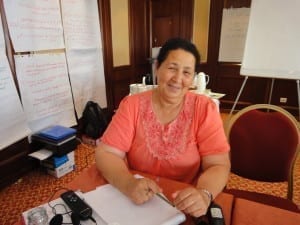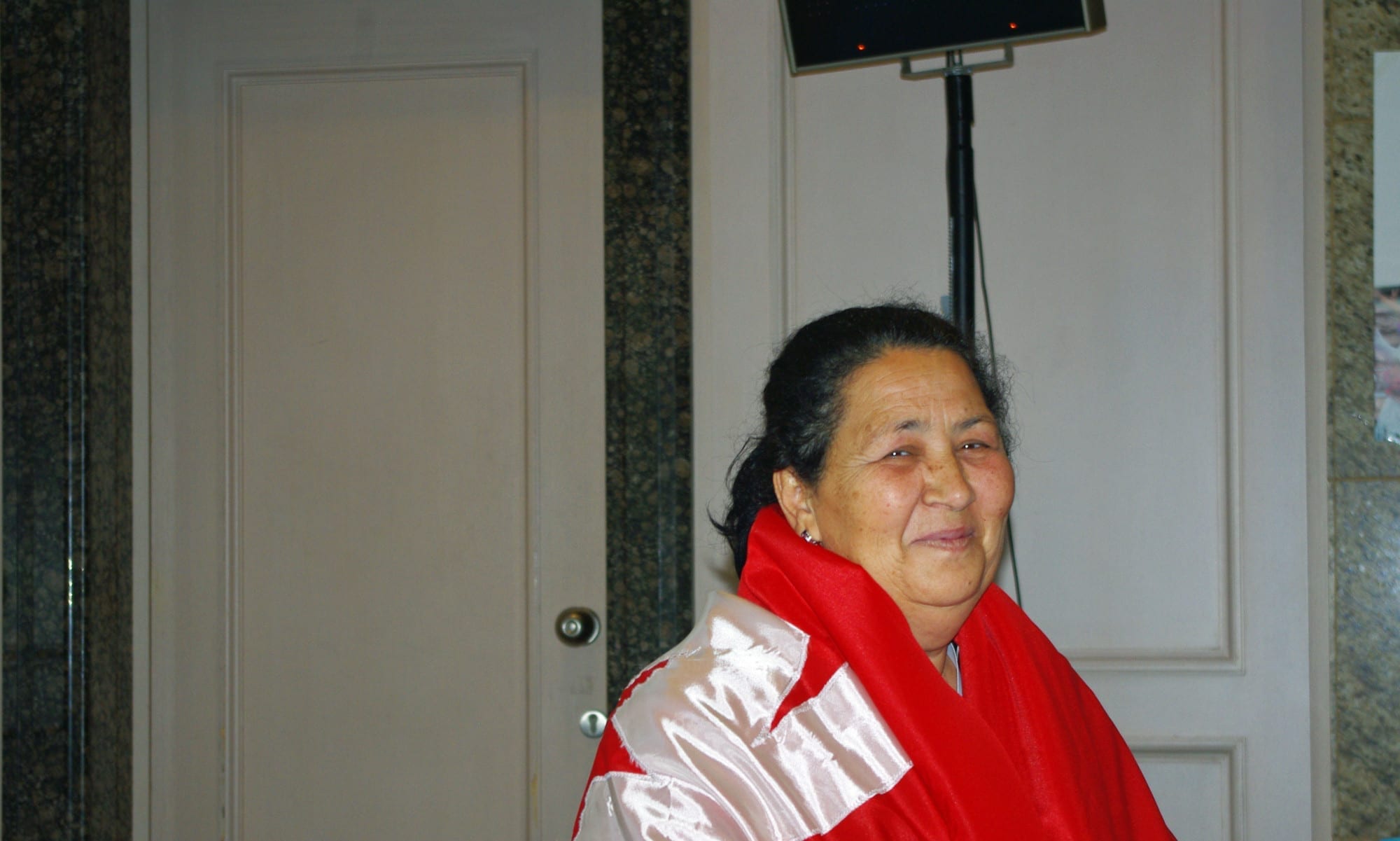As a young union activist in Tunisia’s railway industry, Kalthoum Barkallah was not convinced that there was a need to work for gender equality. After all, she thought, unions did not distinguish between male and female workers. But one day when she pointed out that access to day care should be among the demands unions include in their efforts to improve worker rights, a union colleague told her it was out of order to address such an issue with management.
“This incident made me realize that there are problems specific to women and only women can understand and defend. This incident pushed me to join the women’s committee and I was elected at the national level, to defend their cause and their rights,” says Barkallah.
Now a Tunis-based Solidarity Center senior program officer and master trainer, Barkallah has not stopped championing the rights of women workers since that day back in the 1980s.
The First Step: Developing Confidence
As a trainer in gender equality, Barkallah has conducted workshops in nearly one dozen countries, including Morocco, Algeria, England and France. Frequently, the first barrier she must overcome is enabling women to get past their fears. “Often, women participants do not have enough confidence to start talking, to express themselves,” she says.
Barkallah says it is important that both women and men take part in the gender equality trainings, which begin by differentiating between the terms “sex” and “gender.”

Unions “stand for liberty and democracy” and are especially important for women, says Barkallah. Credit: Solidarity Center/Imane Zaghloul
“We explain that gender is determined by society, by community, and the meaning of gender changes from one society to another,” says Barkallah. “Sex is something we are born with. We explain to women there is no reason there should not be equality between men and women, and they have to challenge their male colleagues to achieve equality and justice for all.”
Aida Sbai participated in one such training. It “strengthened my capacity and gave me confidence in myself as a woman activist with the right and the capacity to hold leadership positions with men to defend the cause of working women,” she said.
Sbai, a union member in the food and tourism sector and coordinator of the Women’s Department in the Federation of Food and Tourism Workers of Tunisia (FGAT), says, “Thanks to this training, I was able to convince workers in my sector (tourism) to join the union and to stand for union election.
“I also campaigned next to men to elect women, and the result we have today is that many women are now union leaders with the federation (FGAT).”
Ultimate Goal: Changing Conditions for Women
Numerous women who have participated in these workshops have gone on to take leading roles in their unions—one is member of her union’s executive committee in Tunisia, as is another woman in Jordan, Barkallah says. Such accomplishments fulfill what she sees as the trainings’ short-term objectives: to enable a woman to “be a citizen who is engaged in the social, political and economic life of the country and have confidence in herself.”
Ultimately, says Barkallah, “the goal is to change the conditions of work for women, to establish social justice and democracy between men and women.”
Barkallah says her union experience has reinforced the cultural, political and economic convictions she developed through the influence of her father, an active trade unionist, and by her participation as a university student in the struggle for democracy in the mid-1970s.
She sees unions as particularly important for women because a union is a “unique organization that defends the civil society, economy, society and the political rights of women. It allows women to be liberated and emancipated, opens horizons at the national and international levels, and allows her to change her conditions. Unions stand for liberty and democracy.”
‘Change Comes with Women and Nothing Can Stop Them’
As an activist with the Tunisian General Federation of Railways, Barkallah was first elected deputy general secretary in 2000, heading up training within the union. She later was elected deputy general secretary in charge of international relations and, in 2006, elected president of the International Transport Workers’ Federation (ITF)–Arab Women’s committee. Barkallah has been an active union leader with Tunisia’s union federation, the Union Générale Tunisienne du Travail (UGTT). Throughout, she balanced both work and family duties, raising two sons who each now have their own children.
Barkallah says the most moving experience in her 25 years of activism revolves around the success women achieved after the 2011 uprising. Tunisian women first helped spur protests and end autocratic regimes in Tunisia and throughout the Arabic-speaking world and then organized a democratic coalition to successfully defeat a proposed change to Tunisia’s constitution that would have reduced the legal status of women.
“Women built alliances with civil society, labor organizations, and we were able to change the law. I found this experience really moving. Women can change their situation—and that change comes with women and nothing can stop them.”

